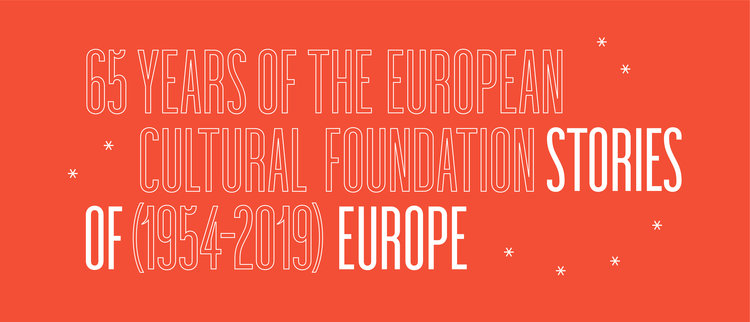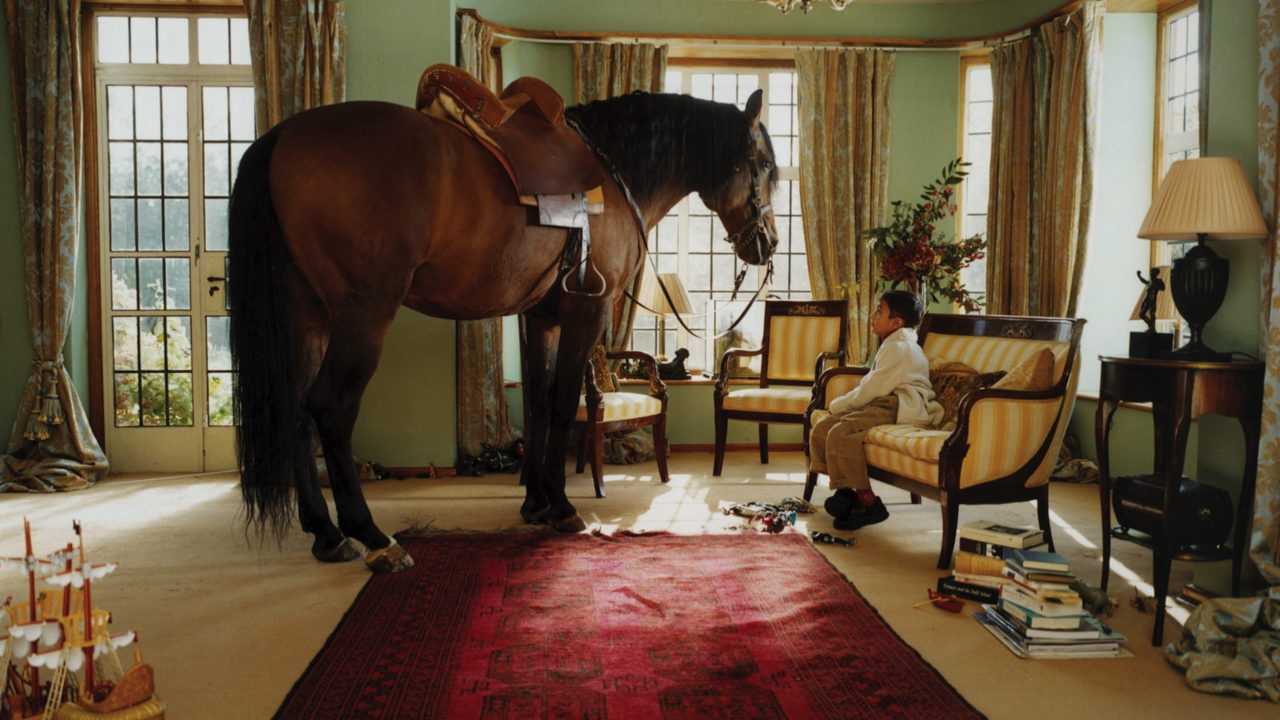ECF in One Paragraph
Our founders created the European Cultural Foundation in 1954 as they envisioned a united Europe where citizens feel proudly European, a place where they can live, express themselves, work and dream freely, in diversity and harmony. Ever since the ECF promotes a European sentiment through developing and supporting cultural initiatives that let us share, experience and imagine Europe. We believe our mission is as urgent now as it was back then.
History

The European Cultural Foundation was set up in Geneva in 1954. Its founding figures included the Swiss philosopher Denis de Rougemont, the architect of the European Community Robert Schuman, and HRH Prince Bernhard of the Netherlands, under whose presidency the foundation moved to Amsterdam in 1960. They all believed passionately in culture as a vital ingredient for Europe’s post-war rebuilding and healing.
They envisioned a united Europe where citizens feel proudly European, a place where they can live, express themselves, work and dream freely, in diversity and harmony. They created the ECF “for the stimulation of the European sentiment, to promote the development and preservation of a feeling of mutual comprehension and democratic solidarity between the peoples of Europe by encouraging cultural and educational activities of common interest”.
The foundation has always focused on programs and grants enabling mobility and the exchange of ideas, education through culture, and capacity-building. In its 68 years of existence the foundation has initiated and developed dozens of programmes, supported thousands of Europeans with grants and exchanges and helped put culture and cultural policies on the European agenda.
Erasmus Programme
Its Plan Europe 2000 project on ‘man in the 21st century’ resulted in the establishment of research institutes in diverse fields across Europe. One of these institutes together with the European Commission started the Erasmus Programme for students, which was run by the foundation until 1995. Together with the Council of Europe the foundation initiated the European broadcasting ‘Prix Europa’ (the annual media prize honouring the best European radio, television and, later on, internet programmes).

Art for Social Change
In the late nineties we broadened our range of activities: promoting social participation through the arts and reflecting on the role of artists in societal change. Together with the Open Society Foundation, we set up the youth programme, Art for Social Change, in South East Europe and the Baltic Region. The rapid uptake of new media technologies encouraged us to start LabsforCulture – an online networking platform that facilitated cultural exchange – , and many programmes dedicated to media activism across Europe. from 2008 – 2019, the ECF Princess Margriet Award decorated stellar examples of culture as a force of positive change.
European Neighbourhood Programmes
The enlargement of the EU in 2004 provided Europe with new (Schengen) borders and ‘new’ cultural neighbours on the outside. ECF has always been a strong advocate of a much wider cultural idea of Europe. A Europe that doesn’t just stop at political or national borders. In 2009, our long-term collaboration with new arts initiatives and cultural policy activists from many regions outside the EU initiated the launch of our European Neighbourhood capacity development programmes. For more than a decade our programmatic engagement with cultural civil society groups from the entire EU Neighbourhood showed that we cannot imagine an open, inclusive and humane future for Europe without collaborating with people and communities from our immediate neighbouring countries. Since 2019, Tandem and other ECF partner initiatives in the Balkans, Turkey and beyond continue to build on the programmatic legacy of more than 15 years of our EU Neighbourhood work.
Democracy Needs Imagination
Through Connected Action for the Commons, a network and action research programme we developed opportunities for Europeans to apply for research and develop grants. In the run up to the European Parliament elections of 2019 we launched Democracy Needs Imagination grants for all those breathing new life into European democracies. Because we love Europe.
Have a look at Stories of Europe, a book on our work in the last 65 years
Culture of Solidarity
In 2020, we launched the Culture of Solidarity Fund to support cultural initiatives that, in the midst of turmoil and crisis, reinforce European solidarity and the idea of Europe as a shared public space. Since then we have opened seven editions ranging from supporting cultural actors in the Corona crisis, regional and thematic editions, to dedicated Ukraine editions.
In these seven rounds, we have supported more than 200 projects with 4.7 million euros with 19 co-funding partners on board.
From the first edition onwards, we offer public stakeholders and foundations the opportunity to connect local/national action with European purpose by inviting them to join the Culture of Solidarity Fund. It is a matter of scale and impact. This echoes the words of our founder – Robert Schuman – who famously said, “Europe will not be made all at once, or according to a single plan. It will be built through concrete achievements which first create a de facto solidarity.”
European Sentiment
In 1954, our founder Denis de Rougemont wrote about the ‘necessity to awake a common sentiment of the European’: “Unless there is a fairly rapid and general awareness of the danger that all our countries are running together, but also of the immense resources that Europe would still have at its disposal on the sole condition of uniting – all the treaties and acts that can be concluded will be insufficient, will come too late, or will remain a dead letter. If, on the contrary, a sense of common destiny is awakened among Europeans, most of the obstacles that exist today will seem easier to overcome, or even vanish inasmuch as they consist of prejudice, partisan blindness, unfounded mistrust and, above all, ignorance of the real situation.”
